Daisy Dog vs. Sheltie-Kee: Breed Differences and Similarities
Hypoallergenic
Are Daisy Dogs or Sheltie-Kees hypoallergenic, or neither?
While no dogs are truly 100% hypoallergenic, Daisy Dogs are about as close as it gets, making them an ideal pet if you are an allergy sufferer.
Unfortunately, the Sheltie-Kee is not hypoallergenic, making it not a good choice for a dog lover who suffers from pet allergies.
Temperament
What are the personalities of Daisy Dog and Sheltie-Kee dogs?
Active
Playful
Happy
Alert
Courageous
Intelligent
Friendly
Outgoing
Lively
Gentle
Trainable
Faithful
Instinctual
Playful
Agile
Intelligent
Friendly
Responsive
Affectionate
Obedient
Quick
Lively
Gentle
Bright
Sturdy
Shedding Level
Do Daisy Dogs shed more than Sheltie-Kees, or which breed sheds more, Daisy Dogs or Sheltie-Kees?
Daisy Dogs shed very little hair, making them a great choice for those who dislike excess hair in the house.
Sheltie-Kees are heavy shedders, but regular brushing can help manage shedding and promote a healthy coat.
Origin
What is the origin of Daisy Dog and Sheltie-Kee dog breeds?
United States
United States
Ancestry
What are the origins of Daisy Dog and Sheltie-Kee breeds?
Poodle, Shih-Tzu, Bichon Frise
Shetland Sheepdog and Keeshond
Date of Birth
When were Daisy Dog and Sheltie-Kee breeds first developed?
1950s
2000's
Eye Color Possibilites
What are the eye colors of Daisy Dog and Sheltie-Kee dogs?
Brown
Brown
Nose Color Possibilites
What are the natural nose colors of Daisy Dog and Sheltie-Kee?
Black
Black
Brown
Isabella
Coat Color Possibilites
What are the natural colors of the coat for Daisy Dog and Sheltie-Kee breeds?
White
Red
Silver
Gray
Black
Brown
Blue
Black
Gray
Cream
Brown
White
Coat Length
What is the typical coat length for Daisy Dog and Sheltie-Kee breeds?
Daisy Dogs have medium-length coats.
Sheltie-Kees are known for their coat length.
Coat Density
What is the density of the coat of Daisy Dog and Sheltie-Kee?
Coat Texture
What is the hair texture of Daisy Dog and Sheltie-Kee?
Straight
Litter Size
What is the usual litter size for Daisy Dog and Sheltie-Kee?
A Daisy Dog can have a litter of 2-5 puppies on average. However, it's worth noting that the size of the litters can vary greatly. Factors that can influence litter size include the health of the mother, breeding history, and genetics.
A Sheltie-Kee can have a litter of 3-8 puppies on average. However, it's worth noting that the size of the litters can vary greatly. Factors that can influence litter size include the health of the mother, breeding history, and genetics.
Adaptability
Daisy Dog and Sheltie-Kees are known for their adaptability and versatility. They are capable of adapting well to a wide range of lifestyle changes and living environments, making them great companions for families and individuals of all lifestyles.
Health Issues
Between Daisy Dog and Sheltie-Kee, which breed is more prone to health problems?
Daisy Dog and Sheltie-Kee breeds are generally considered to be healthy. However, like all breeds, they are susceptible to certain health issues and it is important to keep an eye out for them and address them with your veterinarian as needed.
Major Concerns
What are the major health concerns for Daisy Dog and Sheltie-Kee breeds?
Patellar Luxation
Epilepsy
Bloat
Eye Problems
Addison's Disease
Deafness
Hip Dysplasia
Dermatomyositis
Von Willebrand's Disease
Patent Ductus Arteriosis (PDA)
Collie Eye Anomaly (CEA)
Minor Concerns
What minor health issues should be kept in mind when owning Daisy Dog and Sheltie-Kee?
Hip Dysplasia
Reverse Sneezing
Bladder Stones and Infections
Diabetes
Microphthalmia
Tetralogy of Fallot
Cryptorchidism
Idiopathic Epilepsy
Eye Conditions
Occasional Tests
What occasional tests are recommended for Daisy Dog and Sheltie-Kee breeds?
X-Rays
Ultrasound
Electrocardiogram
Urinalysis
Blood Gas Analysis
ACTH Stimulation Test
Blood Tests
Full Physical Examination
Skin Biopsy or Intradermal Tests for specific allergies
Radiography
Hip X-Rays
Dna For Pra
Blood Tests
Eye and Ear Examination
DNA for VWD
Social Needs
Daisy Dog vs Sheltie-Kee social needs comparison
Daisy Dog has very high social needs and requires regular mental and physical stimulation, a job or purpose, and companionship.
Sheltie-Kee has above average social needs and thrives with interaction with humans and other dogs.
Sleeping Need
Which of the two sleeps the most/least: Daisy Dog or Sheltie-Kee?
Daisy Dogs have moderate energy levels and typical sleep patterns of 12-14 hours per day.
Sheltie-Kees sleep less than other breeds but still need adequate sleep for good health.
Mouthiness
Mouthiness Comparison: Daisy Dog vs Sheltie-Kee?
Roaming urge
Daisy Dog vs Labrador: Running away tendency?
Prey Drive
Daisy Dog or Sheltie-Kee - which breed has a higher level of prey drive?
Activity Level
Which breed has higher energy, Daisy Dogs or Sheltie-Kees?
Daisy Dogs are low-energy dogs. This breed make a great companion for a relatively inactive person. Daisy Dog dogs require a few short daily walks, and then they're happy snuggling next to you for the rest of the day.
Sheltie-Kees are high-energy dogs. They need mental as well as physical exercise. These dogs require a lot of your involvement and without it they can, and will, become problematic dogs.
Tolerance of being left alone
Walks per Week
How many miles should Daisy Dog or Sheltie-Kee walk each week?
There's really no limit to how far you walk your dog as long as they're comfortable. For Daisy Dog, it's at least 4 miles / week. Just remember to build distance and stamina gradually over time.
There's really no limit to how far you walk your dog as long as they're comfortable. For Sheltie-Kee, it's at least 14 miles / week. Just remember to build distance and stamina gradually over time.
Activity per Day
Do Daisy Dogs or Sheltie-Kees require more exercise?
In general most Daisy Dogs usually need at least 30 minutes of exercise daily. This can be spread across the day and include all sorts of high-energy activities, like walking, running and playing.
In general most Sheltie-Kees usually need at least 120 minutes of exercise daily. This can be spread across the day and include all sorts of high-energy activities, like walking, running and playing.
Grooming
Which breed is easier to maintain in terms of grooming, Daisy Dogs or Sheltie-Kees?
These breeds are known for having high grooming needs.
Brushing Frequency
What is the recommended brushing frequency for Daisy Dog and Sheltie-Kee dogs?
Daisy Dog should be brushed at least once a week. Of course you can give them more frequent brushes if you find that they are still shedding a lot
Ideally, Sheltie-Kee should be brushed at least 2 or 3 times a week (preferably daily) improve shedding.
Brushing Tools
What brushing tools are used for Daisy Dogs and Sheltie-Kees?
Pin Brush
Comb
Nail Clipper
Pin Brush
Comb
Nail Clipper
Cups
How much food should be given to Daisy Dog or Sheltie-Kee in cups?
Daisy Dog and Sheltie-Kee share the same recommended daily food intake of 2 cups, although the appropriate quantity may vary depending on the quality and nutritional content of their food.
Daily Cost
Which breed has a higher daily cost, Daisy Dog or Sheltie-Kee?
Daisy Dog and Sheltie-Kee have a similar average daily cost of around $1.70 - $2.00.
Monthly Cost
Which breed has a higher monthly cost, Daisy Dog or Sheltie-Kee?
When it comes to monthly expenses, both Daisy Dog and Sheltie-Kee have a similar average cost, ranging from $48 - $63. This results in an average yearly cost of around $576 - $756.
Sensitivity Level
How do Daisy Dog and Sheltie-Kee compare in sensitivity?
This breed is sensitive and requires gentle handling and a calm home environment.
This breed is sensitive to its environment and best suited for patient and understanding families with a consistent routine.
Apartment Friendly
Which breed is more apartment-friendly: Daisy Dog or Sheltie-Kee?
Daisy Dogs make excellent apartment dogs, being fairly active indoors and not requiring a yard.
Sheltie-Kees are good apartment dogs as long as they get enough exercise and stimulation outside of the apartment.
Child Friendly
Do Daisy Dogs or Sheltie-Kees have a friendlier temperament towards children?
Daisy Dog and Sheltie-Kee are kid-friendly dogs. They are good with children and excellent dogs with children if they are socialized and trained at a young age.
Senior-friendly
Which dog is more suitable as a pet for the elderly - Daisy Dog or Sheltie-Kee?
Cat Friendly
Do Daisy Dog or Sheltie-Kee breeds have a better compatibility with cats?
Daisy Dogs and Sheltie-Kees are very cat friendly dogs. They generally make good companions for cats.
Dog Friendly
Which breed is more sociable with other dogs: Daisy Dog or Sheltie-Kee?
Daisy Dogs are generally very friendly towards other dogs, with a happy and affectionate temperament.
Sheltie-Kees are friendly and active companions, and can be good family pets, though their friendliness towards other dogs may vary.
Pet friendly
How do Daisy Dog or Sheltie-Kee dogs interact with other pets?
Stranger Friendly
Which breed is more friendly with strangers: Daisy Dog or Sheltie-Kee?
Daisy Dog and Sheltie-Kee are friendly dogs and typically won't bark at strangers. However, if you wish to change this behavior, training them is easy thanks to their intelligence, making it pretty simple to teach them anything.
Playfulness
Which breed is more playful between Daisy Dog and Sheltie-Kee?
Daisy Dog and Sheltie-Kee have an average level of playfulness. Like other dogs, they enjoy playing, but they are not the most playful dog breed.
Trainability
How do the trainability levels of Daisy Dogs and Sheltie-Kees compare?
Daisy Dogs are popular for their ease of training and quick learning ability.
Sheltie-Kees are usually easy to train but require consistency to fully obey commands.
Compare Daisy Dog with other breeds

Bullboxer Staff
Daisy Dog vs Bullboxer Staff

Greater Swiss Mountain
Daisy Dog vs Greater Swiss Mountain
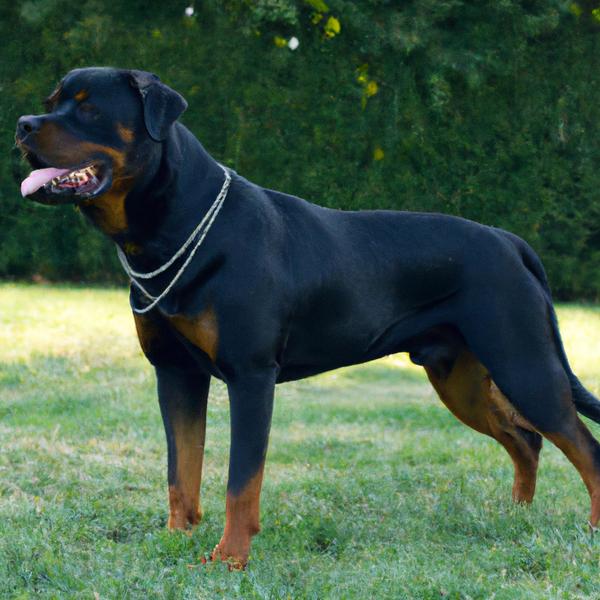
Italian Mastweiler
Daisy Dog vs Italian Mastweiler
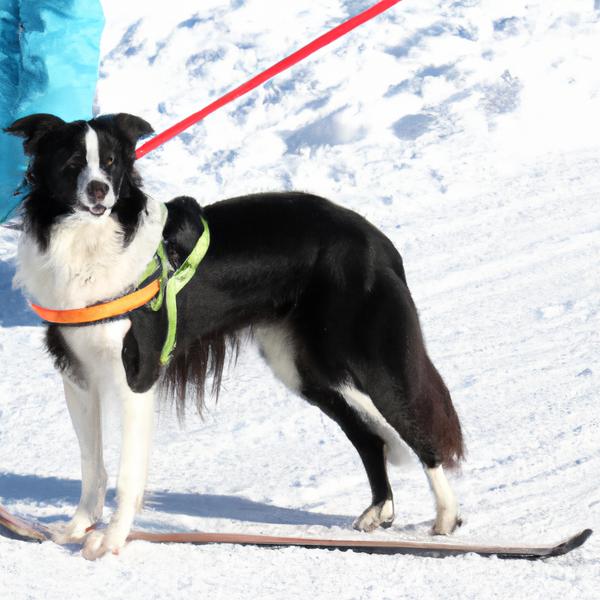
Ski-Collie
Daisy Dog vs Ski-Collie

Papi-poo
Daisy Dog vs Papi-poo

Jatzu
Daisy Dog vs Jatzu
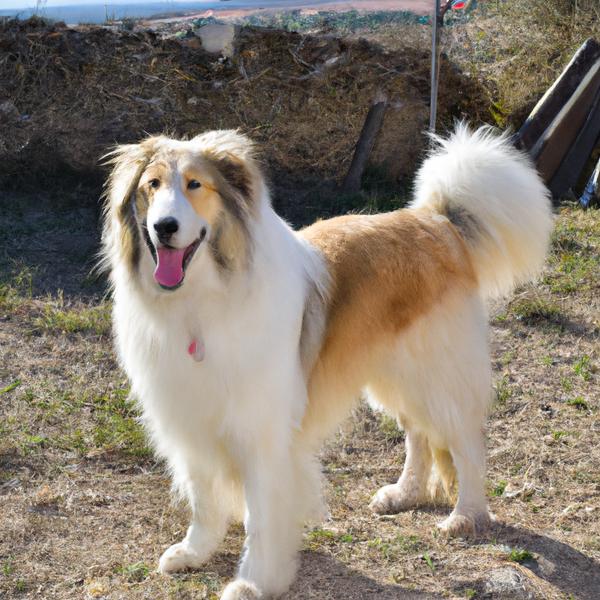
Collie Pyrenees
Daisy Dog vs Collie Pyrenees
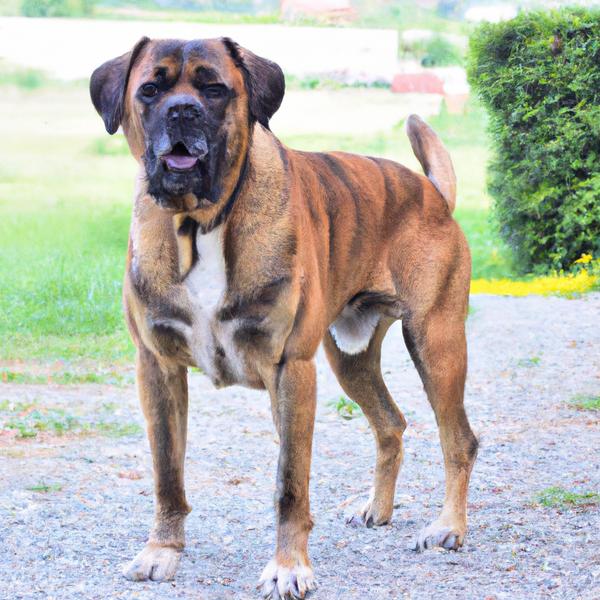
Bologco
Daisy Dog vs Bologco

Smooth Fox Pinscher
Daisy Dog vs Smooth Fox Pinscher
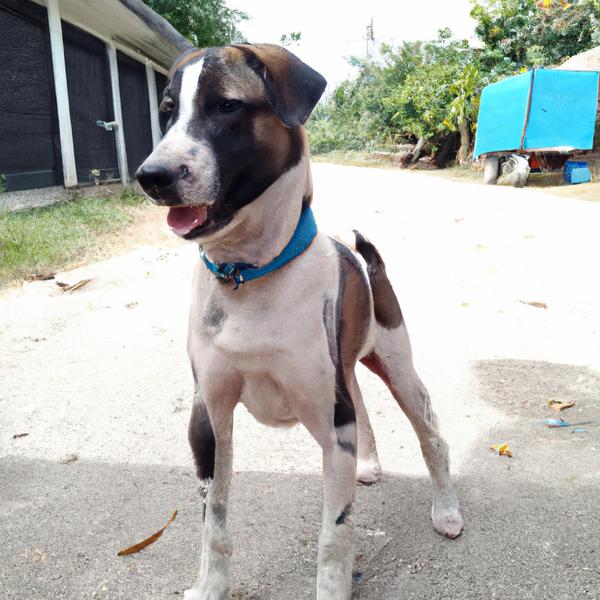
Boxsky
Daisy Dog vs Boxsky

Yorkeltie
Daisy Dog vs Yorkeltie
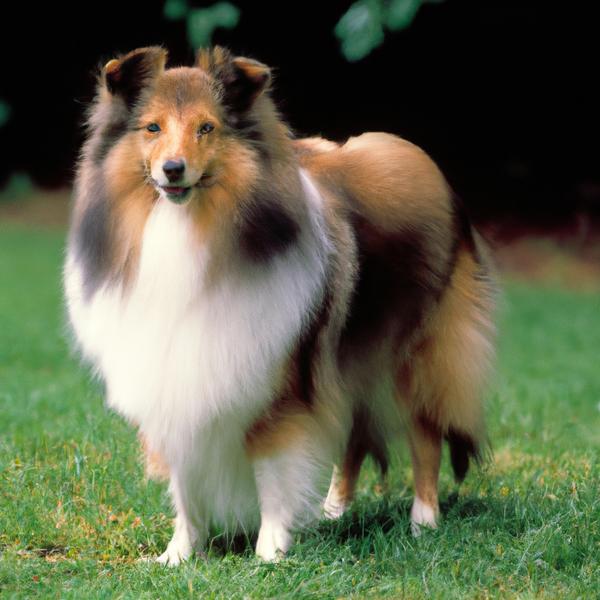
Sheltie-Kee
Daisy Dog vs Sheltie-Kee
